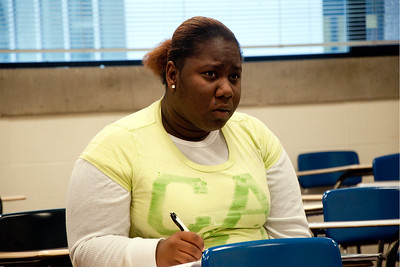Yesterday, I looked at the impact of COVID-19 on recent high school graduates. But adult learners in Washtenaw County will feel the effects of the pandemic for years to come.
Getting adults back in school can be difficult in good times. Adults must be motivated to re-enroll. Usually, the motivation involves a job loss, the need for higher income, or the personal desire to do something different. Right now, few of these motivators are strong enough to entice adults back into the classroom.
While some people undoubtedly fear contracting COVID-19, many would-be adult learners just have too many competing demands to take on an academic program. Worries about job losses, additional financial pressures, and the need to manage their children’s online education all conspire to keep adults out of classes.
Show them the money
The Michigan Reconnect and the Futures for Frontliners programs demonstrate that there is a lot of demand for community college education, but the target audiences don’t have the money to attend school. Or they think they don’t have the money to go. Money is a primary issue for adult learners.
The number one reason that college-bound students don’t fill out the Free Application for Federal Student Aid (FAFSA) is that they don’t know they can. (Or should.) Many students – including adult learners – think that they will not qualify for financial aid if they or their spouse work. Some adult learners don’t know how to fill out the FAFSA -which is now an entirely on-line process. That means adults without computer skills could be completely closed out of federal (and state) student aid.
WCC would attract more adult learners (and high school seniors, for that matter) if it would offer workshops or tutorials on filling out the FAFSA. These don’t even have to be in-person events, although they could be. This simple act would open doors for adult learners, recent high school graduates, and soon-to-be graduates.
Impact of COVID-19 clear for online classes
Another impact of COVID-19 affects online learning. After having done online learning for a year, nearly 7 out of 10 college students do not like it. They clearly prefer in-person delivery. True, some students love it, but for schools that have spent a lot of money and time building degree programs and infrastructure to support online learning, the jury is unreservedly in on this issue.
Online learning will leave a persistent mark on incoming students for the next decade. All those little kids who did “Zoom School” during the pandemic? It’s been a bad experience for them, too – one they won’t willingly repeat.
Institutions that planned to go full steam ahead with online classes and degrees should probably hold that thought. Students who love online learning have already gravitated to it. After COVID-19 the 70-ish % who don’t love online learning will need a compelling reason to register for online classes. WCC should carefully re-examine its practice of making certain classes available only online.
WCC has a lot of work to do to entice adult learners back into the classroom. It will require WCC to focus more resources on recruiting and student services. Which means the Board of Trustees must get serious about recognizing and rejecting gratuitous and unnecessary General Fund spending (including new debt issues) until WCC has recovered from the impact of COVID-19.
In all honesty, the Board cannot continue to look the other way while the Administration spends the taxpayers into deficit. It cannot allow the Administration to take its eye off the goal of recovery to build unnecessary buildings and hire more administrators.
It is time for the WCC Board of Trustees to start doing the job they were elected to do.
Photo Credit: Christopher Connell, via Flickr






















